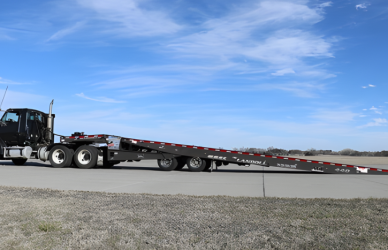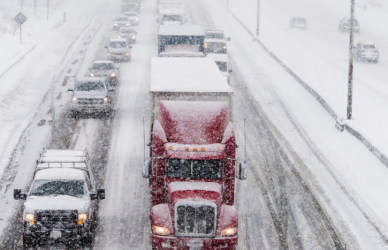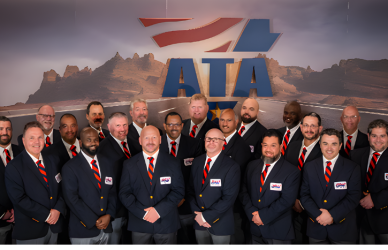When it comes to the trucking industry, tanker trucking jobs play a crucial role in transporting liquids and hazardous materials across various industries. Tanker truck drivers are responsible for delivering everything from fuel and chemicals to food-grade liquids. In this blog post, we will explore the different types of tanker trucking jobs and their classifications. We’ll delve into the special endorsements or training required for each type and discuss the pros and cons associated with these roles.
Types of Tanker Trucking Jobs:
Fuel Tanker Truck Drivers
Fuel tanker truck drivers are responsible for transporting various types of fuel, such as gasoline, diesel, or aviation fuel. They ensure the safe delivery of fuel to gas stations, airports, and other fueling facilities. These drivers need a CDL with a tanker endorsement, which allows them to operate vehicles carrying liquid cargo. Fuel tanker truck drivers often work long hours and may have regional or long-haul routes. While this role offers competitive pay, it also comes with the responsibility of handling hazardous materials and complying with strict safety regulations.
Special Endorsement/Training: CDL with a tanker endorsement, hazmat endorsement will likely also be required
Pros: Competitive pay, consistent demand, and potential for regional or long-haul routes.
Cons: Exposure to hazardous materials, strict safety regulations, and long hours on the road.
Chemical Tanker Truck Drivers
Chemical tanker truck drivers specialize in transporting chemicals, including hazardous materials. They require a CDL with a hazardous materials (Hazmat) endorsement to ensure they have the necessary training to handle and transport these substances safely. Chemical tanker drivers may transport industrial chemicals, corrosive materials, or flammable liquids. This role offers higher pay due to the specialized nature of transporting chemicals. However, drivers must strictly adhere to safety protocols, as they are exposed to potential risks associated with handling hazardous materials.
Special Endorsement/Training: CDL with a hazardous materials (Hazmat) endorsement and tanker endorsement
Pros: Higher pay due to the specialized nature of transporting chemicals, potential for local or regional routes, and job stability.
Cons: Strict adherence to safety protocols, increased risk due to handling hazardous materials, and potential exposure to toxic substances.
Food-Grade Tanker Truck Drivers
Food-grade tanker truck drivers are responsible for transporting liquids that are essential to the food industry, such as milk, juice, or liquid ingredients. These drivers need a CDL with a food-grade tanker endorsement, which ensures they have the knowledge and skills to maintain sanitary conditions during transportation. Food-grade tanker drivers may have opportunities for shorter routes and more home time compared to other tanker trucking roles. They must adhere to strict food safety regulations to ensure the integrity and quality of the transported goods.
Special Endorsement/Training: CDL with a food-grade tanker endorsement.
Pros: Opportunities to work with reputable companies, potential for shorter routes and more home time, and the satisfaction of transporting goods essential to the food industry.
Cons: Responsibility for maintaining sanitary conditions, potential for time-sensitive deliveries, and the need to adhere to strict food safety regulations.
Liquid Bulk Tanker Truck Drivers
Liquid bulk tanker truck drivers transport a variety of liquids, such as chemicals, petroleum, or non-food-grade liquids. These drivers require a CDL with a tanker endorsement to operate the vehicles safely. Liquid bulk tanker drivers may have regional or long-haul routes, and they often earn higher pay due to the specialized nature of liquid bulk transport. However, they face challenges related to loading and unloading different types of liquids, maintaining cargo stability, and potential mechanical issues due to the weight of the cargo.
Special Endorsement/Training: CDL with a tanker endorsement.
Pros: Variety in cargo, potential for regional or long-haul routes, and higher pay due to the specialized nature of liquid bulk transport.
Cons: Safety risks associated with transporting different types of liquids, loading and unloading challenges, and potential for mechanical issues due to cargo weight.
Each type of tanker trucking job plays a crucial role in the transportation industry, requiring specialized training and endorsements to ensure safety and compliance with industry regulations.
Tanker trucking jobs offer a range of opportunities for truckers in the transportation industry. Each type of tanker trucking job requires specific endorsements or training to ensure the safe handling and transport of liquids and hazardous materials. Fuel tanker drivers, chemical tanker drivers, food-grade tanker drivers, and liquid bulk tanker drivers all play vital roles in meeting the diverse needs of various industries.
While these jobs come with their own set of challenges, they also offer attractive benefits such as competitive pay, job stability, and potential for regional or long-haul routes. Truckers must carefully consider the risks associated with each type of tanker trucking job, including exposure to hazardous materials and adherence to strict safety protocols.
Whether you’re drawn to the fast-paced nature of fuel tanker trucking or the satisfaction of transporting food-grade liquids, tanker trucking jobs provide an array of options to suit different preferences and skills.
Remember, obtaining the necessary endorsements and undergoing proper training is crucial for ensuring safety and compliance with industry regulations. So, weigh the pros and cons, choose a type of tanker trucking job that aligns with your interests, and embark on a rewarding career in the tanker trucking industry.











